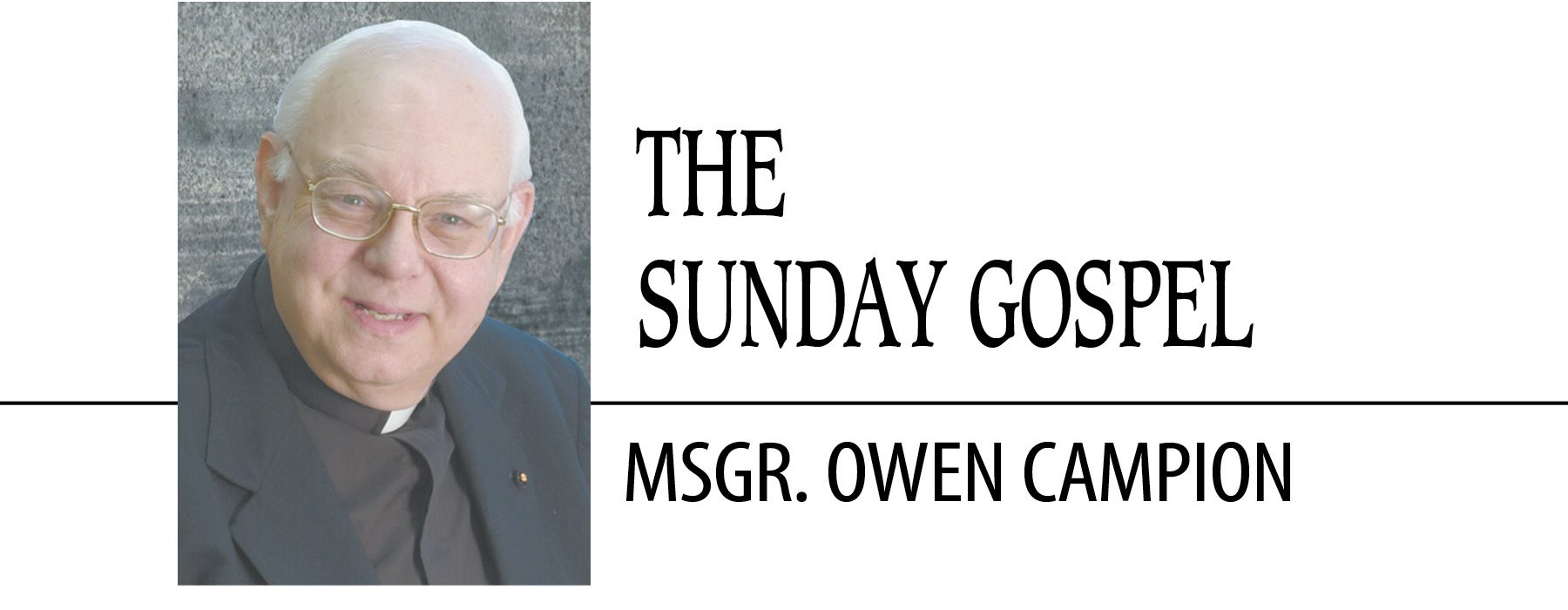May 21, 2022 // Perspective
All peoples are called to faith in Christ
Sixth Sunday of Easter
John 14:23-29
The Acts of the Apostles again provides the first reading for a weekend in the Easter season.
As Christianity grew, it not only expanded beyond its original base in the Holy Land, but it also drew gentiles as well as Jews. Diversity was a characteristic early in the evolution of the Church.
This increasingly multi-cultural nature of the Christian community, however, presented problems, and these problems are evident in this weekend’s reading.
A dispute arose, and the Apostles had to resolve it. It came precisely because new converts, not Jews, presented a dilemma. Were they required to observe the religious practices of Judaism? After all, Jesus was a Jew. All the Apostles were Jews. None had repudiated Moses, who gave them these requirements.
Thus came the argument was about circumcision, the ancient and requisite ritual followed in Judaism for Jewish males even to this day. Evidently, some Christians were demanding that converts from paganism submit themselves to this ritual.
The question was sent to Jerusalem for review by the Apostles. (It is important in understanding the role of the Church to note that these questions were not settled at the local level. The Apostles were sought for resolution. Paul and Barnabas went to them, although Paul himself was an Apostle. He and Barnabas looked to the body of Apostles for an answer. Together the Apostles embodied the power of Christ.)
Replying, the Apostles called the gentile Christians “brothers.” They defined what should or should not be done in discipleship and in very practical considerations of life, basing their decision on their own authority, conferred upon them by the Lord.
The Book of Revelation furnishes the second reading. This reading is poetic and highly symbolic. The city, of course, is heaven, but called the “heavenly Jerusalem.” This heavenly city awaits all who love God. On each of its four sides are three gates, open and available to anyone wanting entry. Three was a perfect number. The four sides refer to the four corners of the earth. In other words, everyone is welcome.
The names of the twelve tribes of Israel appear on the city’s walls, another symbol to say that salvation is offered to all. No tribe is excluded.
St. John’s Gospel gives this weekend the third eloquent reading. It makes three points.
Jesus calls upon the disciples to love each other. It will not be easy for them or for anyone all the time, and the Lord knew that, but such is the only way ultimately to be with God. The Holy Spirit will assist and strengthen.
Finally, for those who truly love God, peace will be with them. Peace is not simply an absence of conflict, or necessarily involving only societies or nations. It is experiencing the reassuring presence of God.
Reflection
The Church is directing us to Pentecost, but it is far from merely pointing us to an anniversary. The Church is telling us that if we accept Jesus, truly and sincerely, God will be with us in the presence of the Holy Spirit.
This means that our hearts will be enriched by the gifts of the Holy Spirit. Seeing life clearly, and thereby emboldened, we will understand events, we will judge wisely, we will be pious, and, in a holy sense, we will fear God because we will realize God’s might but also God’s over- powering mercy.
The route to obtaining these gifts is a voluntary commitment to Christ and allowing Jesus to illumine each step of our personal path. As we look ahead to Pentecost, the Church calls us to strong faith. Without Jesus, we stumble and wander. With Jesus, enriched by the Holy Spirit’s gifts, we walk confidently ahead.
The best news. Delivered to your inbox.
Subscribe to our mailing list today.






